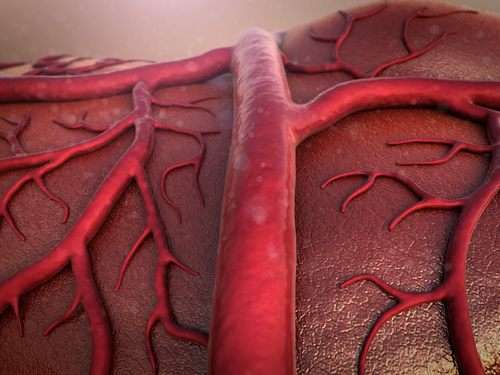Oxidation of FVIII Increases Immune Response in Hemophilia A Mouse Model, Study Finds
Written by |

Oxidation of clotting protein factor VIII (FVIII) increased the immune response to the replacement therapy in a mouse model of severe hemophilia A, a study found.
Conducted by researchers in France, the study, “Oxidation of factor VIII increases its immunogenicity in mice with severe hemophilia A,” appeared in the journal Cellular Immunology.
The major complication of replacement therapy in hemophilia A is the development of antibodies against therapeutic FVIII, the deficient clotting protein in these patients.
Research suggests that the presence of active bleeding and hemarthrosis — bleeding around the joint cavity — are among the non-genetic risk factors for this severe complication. However, the mechanisms underlying this association are still unclear.
Bleeding episodes occur after damage to the endothelium — the inner cellular lining of blood vessels — which releases pro-inflammatory molecules, including reactive oxygen species.
Reactive oxygen species damage cells and proteins, and increase their immunogenicity — the ability to induce an immune response.
FVIII then concentrates at the site of bleeding to participate in coagulation to stop these bleedings. Scientists have demonstrated that FVIII is sensitive to oxidation, which may disrupt its coagulatory activity.
Researchers in this study looked at whether oxidation contributes to the immunogenicity of therapeutic FVIII. The study used FVIII-deficient mice, a model of severe hemophilia A.
Results showed that the use of the antioxidant N-acetyl cysteine (NAC) reduced oxidation and the immune response triggered by administration of FVIII.
Subsequent experiments showed that the oxidant molecule hypochlorous acid (HOCl) reduced the activity of FVIII and induced changes in FVIII.
Results also revealed that, in mice, administration of FVIII previously exposed to HOCl in vitro increased the immunogenicity of FVIII, in comparison with FVIII not exposed to HOCl. Treatment with NAC did not prevent the increased immune response in mice injected with previously oxidized FVIII.
Researchers also evaluated whether FVIII oxidation had an impact on innate immune cells from healthy donors in vitro. Results showed no changes in the cells’ maturation or production of pro-inflammatory molecules, which the researchers attributed to the relatively low concentrations of FVIII used.
“Taken together, our work describes the consequences of FVIII oxidation on its immunogenicity in FVIII-deficient mice,” the researchers wrote. “It also identifies the relevance of the systemic oxidative status as a risk factor for immunization against therapeutic FVIII.”


